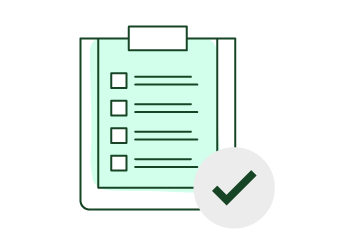Personal Productivity
On Productivity, Words Matter
AUTHOR: Francisco Sáez
Have you ever read a to-do and realized that you do not know exactly what you meant when you wrote it? Have you ever read a to-do that you remember seemed very exciting when it was captured, and now it does not seem that interesting?
The words you use to communicate things, both to other people and to your future “you”, can greatly influence the attitude and behavior of the person receiving the message, even if it is yourself—when you deal with other people, you usually get better results if things are proposed in an inclusive and positive approach.
Written communications are increasingly important. We live in a digital world, flooded with emails, tweets, whatsapps, etc. That is why companies like 37signals, whose jobs are mainly technological, want that all potential employees have good writing skills. Writing correctly allows you to work better, provides you clarity and enhances your productivity:
“It doesn’t matter if that person is a marketer, salesperson, designer, programmer, or whatever; their writing skills will pay off. That’s because being a good writer is about more than writing. Clear writing is a sign of clear thinking. Great writers know how to communicate. They make things easy to understand. They can put themselves in someone else’s shoes. They know what to omit.” – Rework
When you enter a task in your personal management system, you are writing brief instructions for yourself in the future. It is likely that, by the time you read these instructions, your mind map is completely different from the one existing at present. You will not have the same things in your head, nor the same priorities, nor your focus on the same spot. You will not even have the same mood.
An unfortunate wording can make that an important task goes unnoticed, does not suggest what it really means, or does not invite you to do anything. It is therefore important that, at the time of writing the description of a task, you choose the right words. Bear in mind the following clues:
- Language should be simple, direct and easy to understand. To provide the right direction and to not generate any frustration, the definition of the task should be very clear.
- Use concrete verbs to indicate the appropriate action. Generic verbs, such as “plan”, “prepare” or “implement”, do not invite to action but rather to procrastination. Instead, use more specific verbs that help you take the first step. For example, instead of “Improve my Spanish”, write “Call the Spanish academy and get information about classes, timetables and prices.”
- Do not use adjectives. They do not help and are an unnecessary noise, and any unnecessary text increases the chances that your brain gets distracted and focus on another thing, which may be less important at the time.
- Include all the details associated with the task, in an additional note. By the time you create the task, your brain is making a series of connections and associations that later will vanish. Write down any ideas you have at that time related to the task, a link to a page where you found inspiration, a word that makes you remember… This way, when you read the task in the future, your brain will reset connections quickly and you will be able to make the best decision about its execution. Of course, the “simple, direct and easy to understand language” also applies to these notes.
When you pick a task to do that is clearly defined and direct, and you just need a few seconds to understand exactly what you have to do, you find satisfaction and encouragement to carry it out. You can enhance your productivity and your communications with others using a constructive, encouraging and inspiring language.





No comments